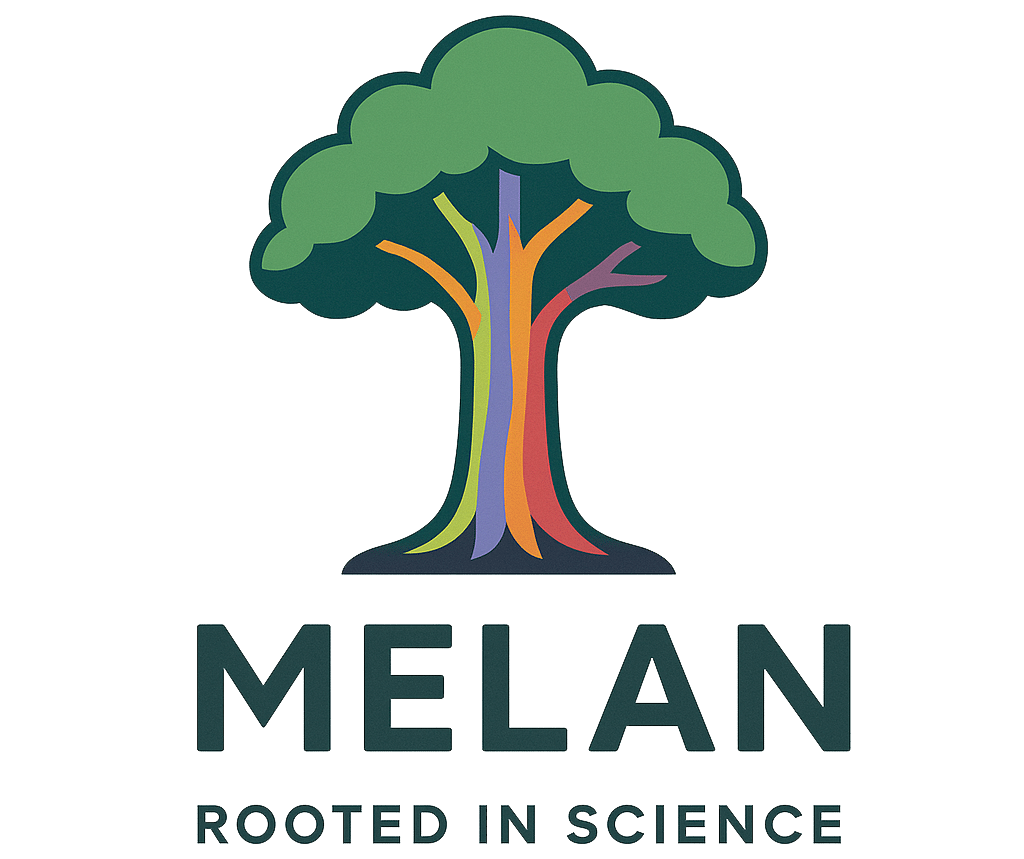The basic principles of SEO like clear content, solid UX, and mobile optimization are still useful, they’re no longer sufficient. The visibility layer has moved. And it’s now being mediated by generative AI, not just search engines. That means you’re no longer optimizing for Google’s index. You’re optimizing for AI systems that answer questions, summarize content, and generate product suggestions without showing a single search result. And remember, many of them do not use Google as their search engine. There is more detail on this below.
Let’s Be Clear: AI Isn’t Magic or Perfect
Language models like ChatGPT, Gemini, Claude, Deep Seek, and others don’t “understand” your website the way a human does. Semantic nuance, domain-specific intent, and edge cases in regulated fields (finance, health, legal) are often flattened or misinterpreted.
- AI doesn’t always preserve context across sessions
- It can miss subtle differentiators like distinguishing between research-grade, medical-grade, or cosmetic
- It might synthesize based on outdated or incomplete content
So no, we’re not suggesting you throw away all of SEO. You need to adapt your strategy to how AI parses, synthesizes, and decides.
Structure Is Now the Gatekeeper
LLMs rely heavily on structured data or schema markup to interpret and assemble accurate product and service representations. This isn’t just about “helping Google” anymore it’s about enabling AI to pick your offering as part of an answer.
What to do:
- Use JSON-LD schema across all key pages
- Include detailed @type, description, offers, availability, and review fields
- Ensure schema matches what’s actually on the page
If there’s a mismatch or no markup you’re invisible in AI-driven results.
Traditional SEO Copy Hurts You
The kind of content that used to rank keyword-heavy, over-structured, often generic is now a liability. Ironically, LLMs which are notorious for redundancy are the best suited to detect it and prioritize content with natural language clarity.
What to do:
- Rewrite content to resemble answers, not brochures
- Prioritize product use-cases, not specs
- Use phrasing that mirrors how people ask questions (“Will this work for sensitive skin?” vs. “Allergen-free certified”)
AI is evaluating your clarity and usefulness. Models aren’t reading your website like a person, they’re processing your text as tokens, breaking it into chunks of language, and mapping it into a high-dimensional vector space to figure out meaning.
Clarity helps because simple, well-structured sentences create cleaner embeddings and they reduce ambiguity. Usefulness matters because the model is trained to predict the next best response based on patterns in helpful content. If your content clearly answers a question or explains a concept without filler or tricks (like keyword stuffing), the model can recognize it as high-quality and include it in its response. So technically: clearer = easier to parse = more likely to be surfaced by the model.
AI Answers Bypass Search Results
People are no longer just using Google and clicking on search results. Instead, they’re asking AI tools to recommend products, compare options, or summarize choices. These tools don’t show a page of ranked links, they generate a few sentences with 1–2 suggestions. That means your website could be completely left out, even if it’s well-ranked on Google.
LLMs Don’t Visit Websites in Real Time
Language models don’t “visit” websites in real time. They generate answers based on what they’ve been trained on (past content) and, in some tools, what they can access via live search or API feeds.
So you need to ensure your site is:
- In the model’s training set (long-term)
- Indexed and structured for retrieval-augmented generation (RAG) or web-integrated tools (short-term)
Make Your Site Machine-Readable and Extractable
Even if you’re not selling anything, your content still needs to be:
- Structured with schema.org markup: Use relevant schema types like Article, FAQPage, HowTo, Dataset, QAPage, or even CreativeWork.
- Clear and unambiguous: Use headings, plain language, and avoid overly clever, satirical, ironic or abstract writing. AI cannot tell the difference between satire and truth unless you’re The Onion. Then you get props and top marks.
- Stable and crawlable: Avoid dynamic content that hides key text in JavaScript. Use canonical URLs. Make your robots.txt and sitemap AI-friendly.
Publish Content That Is Useful to AI and Humans
AI is more likely to reference or generate from content that is:
- Factual, instructional, or explanatory: Think content that answers a question or explains a step-by-step protocol or process
- Topical and specific: niche expertise is valuable especially in science, policy, law, research, or data-heavy fields (I’m waving my hand in the air, that’s Us! The Melan Group!)
- Consistent in format: using a Q&A structure, summaries, or lists
Today, what you can try if you run a blog, portfolio, or smarty-pants site is to convert some of your best content into FAQ-style answers, guides, or summaries. These are easier for AI to surface. The hint is this: if your content has some sort of schema attached to it and clear explanation, AI can parse it.
Distribute Your Content Where AI Finds It
Every single AI system gives extra weight to trusted, high-authority domains. It doesn’t matter who if you’re an independent website or small business, you’re fighting for a crumb of attention by AI and humans that means websites like GitHub, Medium, StackOverflow, arXiv, PubMed, gov/edu sites will be ranked higher, parsed quickly, and utilized frequently.
To increase the chance your content is referenced:
- Cross-publish or syndicate (where appropriate) to larger aggregators
Get citations and mentions from high-authority sources (especially in forums, articles, and wiki-style entries) - Use canonical links back to your original content when republishing
Monitor If Your Website is Included in AI Responses
AI-powered search engines and answer engines are increasingly becoming primary sources of information for users. These platforms use sophisticated algorithms to search, analyze, and synthesize content from across the web to provide direct answers rather than traditional link-based results. Understanding how your content performs in these systems is crucial for maintaining visibility in the evolving search landscape. The list below, we do not endorse nor are we sponsored by any of these platforms. We only have experience using: ChatGPT, Deep Seek, Cluade, Google AI’s Overview, and Copilot Search.
Key AI search platforms to monitor include:
- Perplexity.ai – Uses proprietary search infrastructure built on foundational models from OpenAI, Anthropic, and Google, often analyzing over 20 websites to compile comprehensive answers (Fello AI, 2024).
- Google’s AI Overviews (formerly SGE) – Powered by Google’s Gemini model customized for search, providing AI-generated summaries at the top of search results for specific queries (Search Engine Journal, 2024).
- Microsoft Copilot Search – Integrated into Bing, uses Microsoft’s AI models specialized for information retrieval and cross-references information across multiple sites (Search Engine Land, 2025).
- ChatGPT with Search – OpenAI’s conversational AI with web browsing capabilities that connects users with original web content through a chat interface (OpenAI, 2024).
- Claude with Web Search – Anthropic’s AI assistant that leverages Brave Search as its primary backend, showing strong alignment with Brave’s organic search results (Profound, 2025).
- DeepSeek – Chinese AI platform offering open-source search capabilities with reasoning modes for unlimited searches (AI Multiple, 2025).
- You.com – AI-based search engine providing customized results and web page summaries organized by categories (TopAI Tools, 2025).
- Komo.ai – Privacy-focused AI search engine delivering ad-free search experiences with semantic understanding capabilities (Reliable Soft, 2025).
- ChatGPT Plugins and Custom GPTs – Utilize various search integrations and retrieval-augmented generation depending on specific plugin configurations.
These AI systems typically display their source material through inline citations or reference lists, providing transparency about where information originates. Regularly monitor how frequently your domain appears in these AI-generated responses. If your content rarely surfaces, analyze the websites that do appear consistently – examine their content structure, formatting, authority signals, and how they present information. This competitive analysis can reveal optimization opportunities for improving your visibility in AI search results.
Pay particular attention to which websites appear most frequently across different AI platforms, as this indicates content that multiple AI systems find authoritative and relevant. Visit these high-performing sites to understand their content organization, use of structured data, citation practices, and overall approach to presenting information that AI systems can easily parse and reference.
Reviews and FAQs Train the AI
User-generated content is now AI training data. When someone asks ChatGPT or Perplexity about products in your category, these systems reference real customer reviews and FAQs to form their responses. AI models read your marketing copy and learn about how you and actual customers describe your products. So, when you have reviews or Q&As, these teach AI systems how to talk about your business.
Why This Works
The more authentic, specific customer language you have, the better AI systems understand and represent your offering. This isn’t just about social proof anymore it’s about training the AI tools your prospects are already using to research solutions.
Want help implementing an AI-optimized content strategy that gets your business discovered in the new search landscape? Let’s talk about how to position your brand where AI systems and your customers can find you.
Consistency Is a Trust Signal
AI models often cross-check structured data with visible page content, product feeds, and third-party sources. Mismatches degrade trust and exclude you from consideration.
What to do:
- Keep product info in sync across all channels
- Use automated feed syncing (think Rank Math, Shopify, JSON-LD SEO Apps)
- Perform regular audits of outdated descriptions, broken markup, or duplicate listings
Your authority doesn’t come from backlinks anymore, it comes from consistency and clarity.
Final Thoughts: SEO & AI
SEO isn’t useless. But the idea that SEO is still your primary optimization strategy is a holdover from an earlier era when rankings drove discovery, and blue links meant traffic.
Today, discovery begins with a user asking something like:
“What’s a reliable business insurance provider for freelancers?”
Or
“Best magnesium supplement that doesn’t cause stomach upset.”
And AI delivers one or two clear, confident suggestions. If you’re not one of them, you’re not even in the conversation. So, yes…SEO helps you get indexed. But if your content isn’t structured, super easy contextual cues, and answer-ready, AI will pass you over.
So yes, SEO is outdated. Make sure you optimize for AI because that’s who’s deciding now.
References
- AI Multiple. (2025, April 7). Top 4 AI search engine comparison in 2025. AI Multiple.
- Fello AI. (2024, December 23). Perplexity AI: Everything you need to know about the AI search engine. Fello AI.
- OpenAI. (2024). Introducing ChatGPT search. OpenAI.
- Profound. (2025). What is Claude web search explained. Profound.
- Reliable Soft. (2025, February 11). Top 10 AI search engines for 2025 (ranked by popularity). Reliable Soft.
- Search Engine Journal. (2024, May 16). Google SGE and generative AI in search: What to expect in 2024. Search Engine Journal.
- Search Engine Land. (2025, April 4). Microsoft officially launches Copilot search in Bing. Search Engine Land.
- TopAI Tools. (2025). Top Komo search alternatives in 2025. TopAI Tools.






